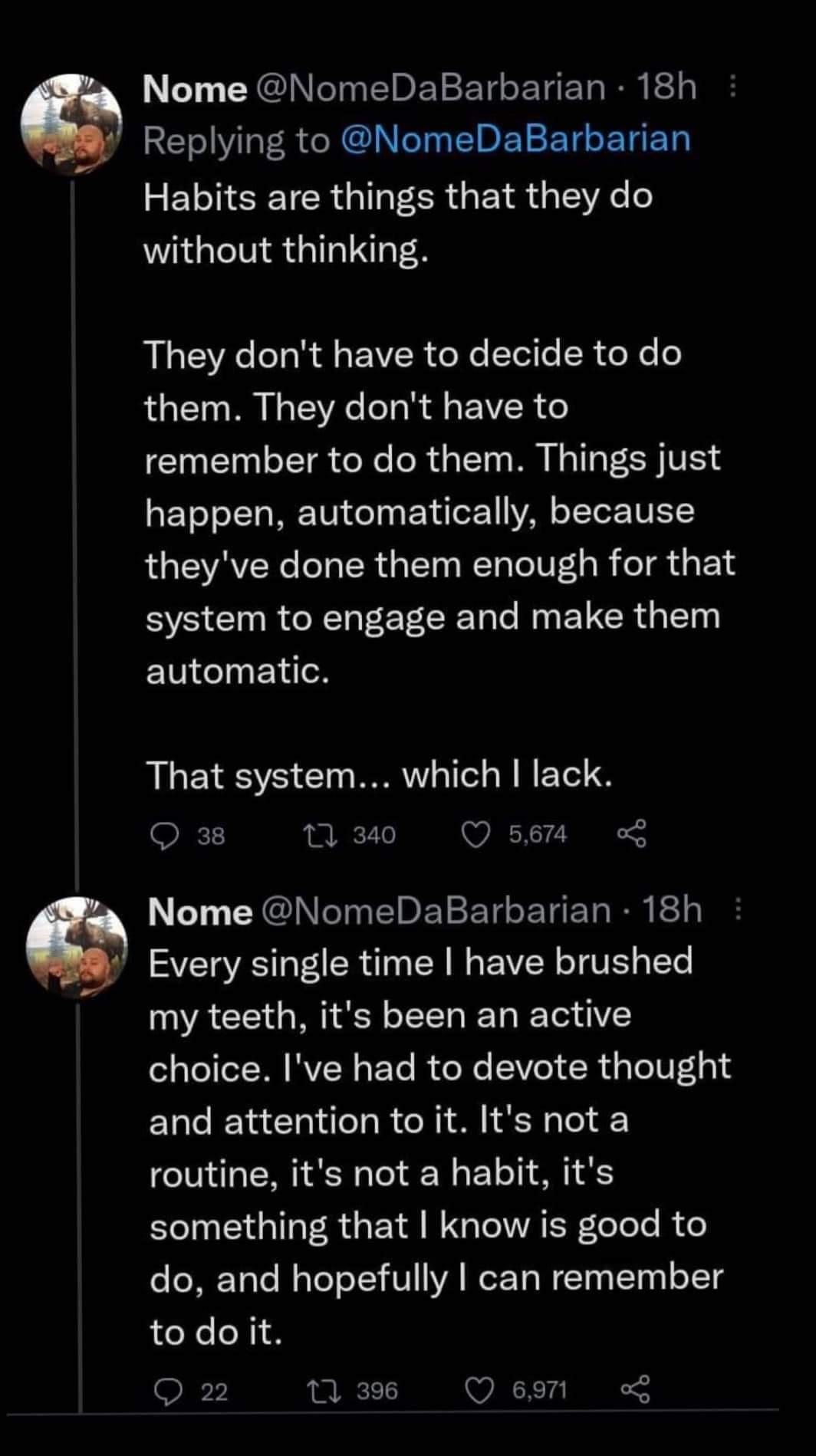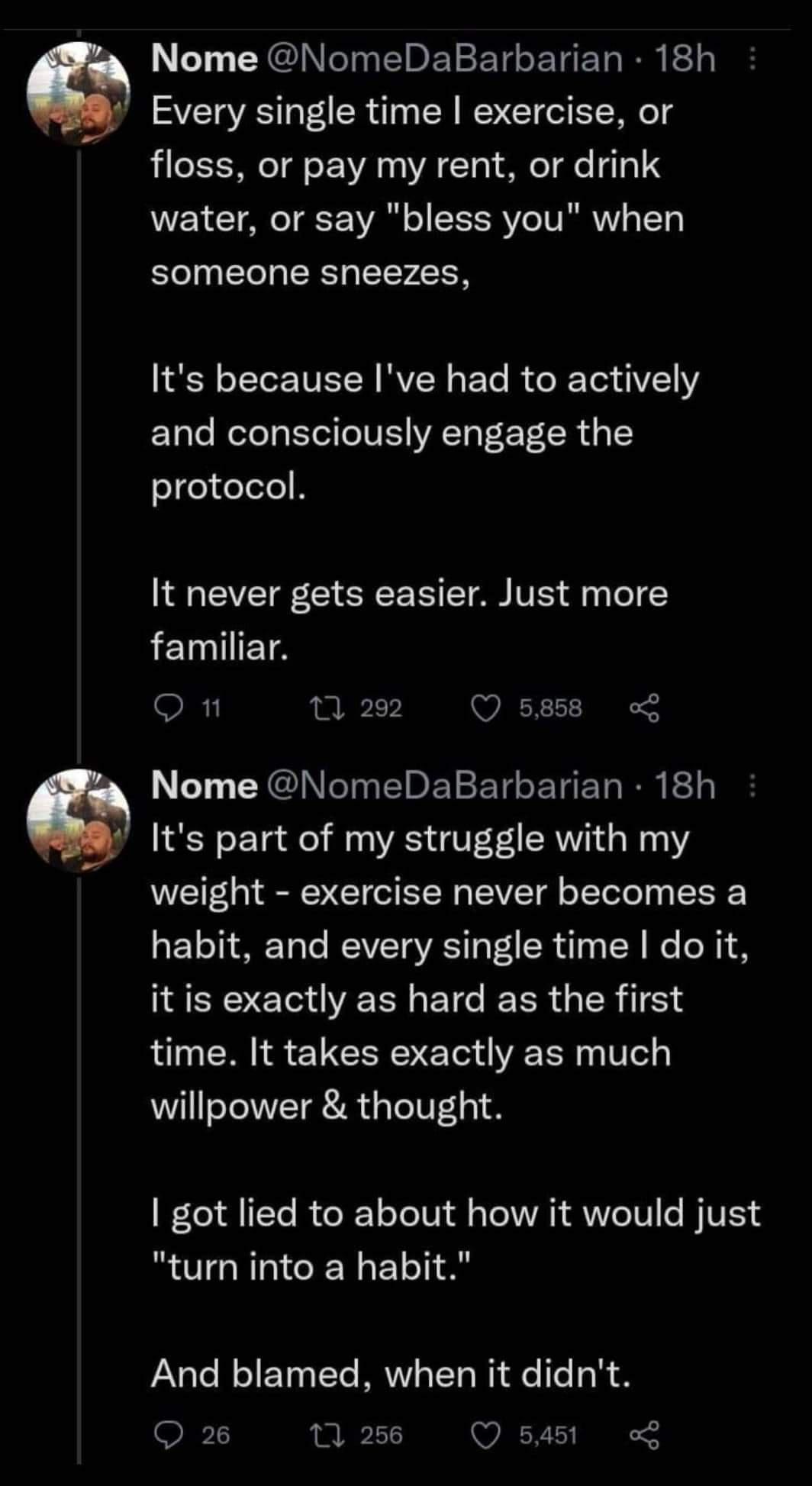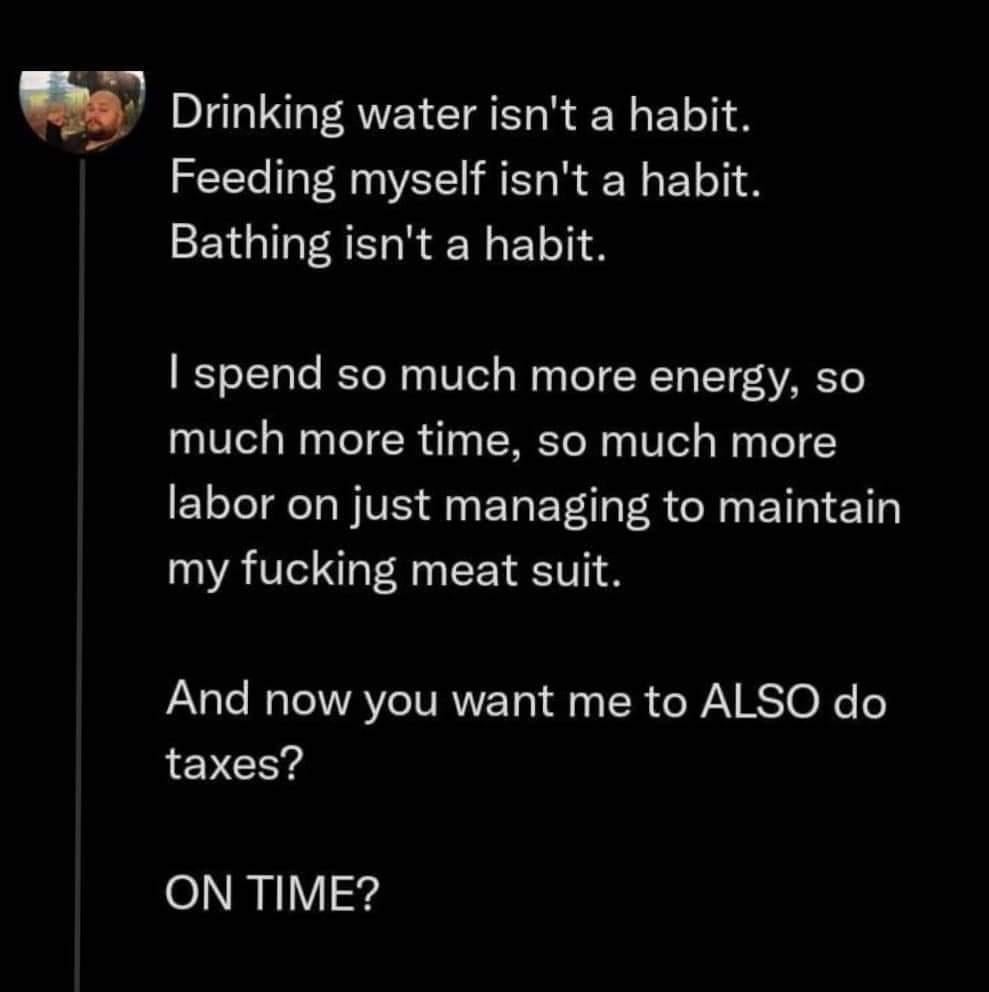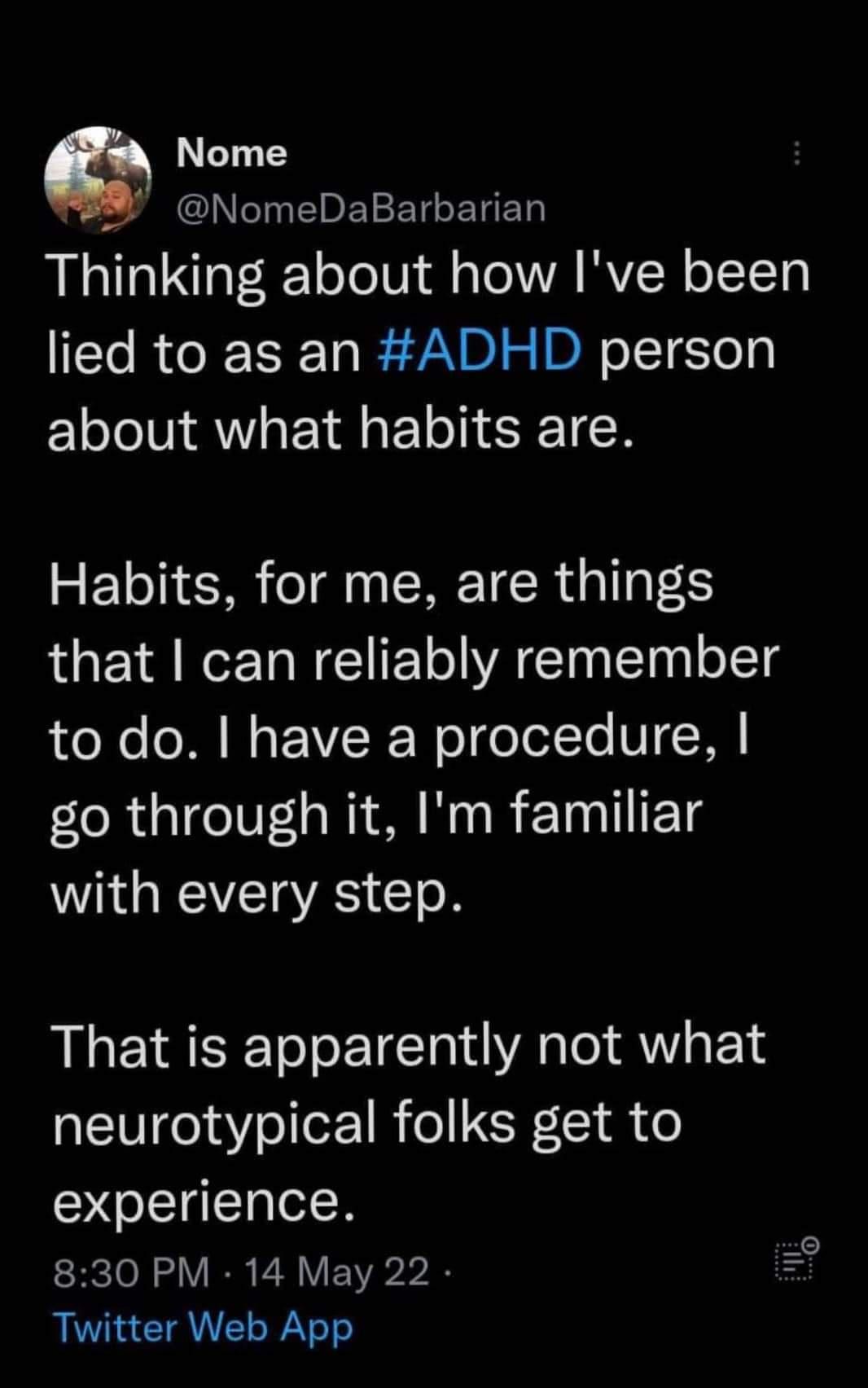Thank you Nome @NomedaBarbarian
For the visually impaired, the images are a series of Twitter screenshots.
Full transcription of text below images.

Full transcription of text below images.

Full transcription of text below images.

Full transcription of text below images.
@NomedaBarbarian on Twitter:
Thinking about how I’ve been lied to as an #ADHD person about what habits are.
That apparently is not what neurotypical folks get to experience.
Habits are things that they do without thinking.
They don’t have to decide to do them. They don’t have to remember to do them. Things just happen, automatically, because they’ve done them enough for that system to engage and make them automatic.
That system…which I lack.
Every single time I have brushed my teeth, it’s been an active choice. I’ve had to devote thought and attention to it. It’s not a routine, it’s not a habit, it’s something that I know is good to do, and hopefully I can remember to do it.
Every single time I exercise, or floss, or pay my rent, or drink water, or say “bless you” when someone sneezes,
It’s because I’ve had to actively and consciously engage the protocol.
It never gets easier.
Just more familiar.
It’s part of my struggle with my weight–exercise never becomes a habit, and every single time I do it, it is exactly as hard as the first time. It takes exactly as much willpower & thought.
I got lied to about how it would just “turn into a habit”. And blamed, when it didn’t.
Drinking water isn’t a habit. Feeding myself isn’t a habit. Bathing isn’t a habit.
I spend so much more energy, so much more time, so much more labor on just managing to maintain my fucking meat suit.
And now you want me to ALSO do taxes?
ON TIME?



Sorry for the long message ahead :)
This is a TL;DR list I wrote to help when my cousin was struggling to eat and having stomach aches whenever he did eat:
Learning #1 was what made me realize my relationship with food was unhealthy and needed to change. #2-3 might not apply to your situation but I’m leaving them in case anyone else needs it.
#4 and 6 really are the answer to your question. When I got my first job out of college, I ate lunch daily with coworkers even if I had no desire to eat, which greatly helped the last thing I’ll share: I redefined what I thought of as hunger.
I realized even when I didn’t consciously feel the need to eat, my body had symptoms. I paid attention to things like lightheadedness, a tightness in my stomach, and shakiness, and started considering those to be “feeling hungry.” After forcing myself to eat more consistently and listening to my body, I actually started to feel hungry on a regular (daily-ish) basis.
Oh, and for a year or two I lifted weights 3x/week and that made me hungrier than I’d ever been in my life. The first three months I always felt hungry. But that’s a bigger commitment than the other suggestions :)
I hope this might help you!
I saved all of this because it seems like it could be super helpful to me. Humans are so complicated and can have so many “co-morbidities” and seemingly related quirks and things they deal with, that it is really nice to see something that I see in myself all the time most of my life actually) and possible solutions or coping strategies. Thanks a lot from the bottom of my icy beart.
I already do all of those things except the weightlifting, and I think burning more kilojoules would be counterproductive to my goals given I want to do the opposite. Making it easy to eat doesn’t cause me to feel a subjective sensation of hunger, and I don’t get those other signs of hunger you describe like lightheadedness or shakiness either. I get a tightness in my stomach, which my nervous system interprets as fullness and turns into a “no more eating” signal.
I’m asking how to feel hungry.
If you are already eating meals consistently and don’t let yourself get to the point of physical impairments from not eating, then I can see how my methods wouldn’t work for you.
My suggestion of having easy meals was just to facilitate eating meals consistently, no matter how you feel. I found when I ate a meal at the same time every day no matter what, after a year or so I actually developed the feeling of needing to eat at that time of day. But if you’re already eating at the same times every day and you still don’t feel a need to, then I don’t think my experiences can help you :(